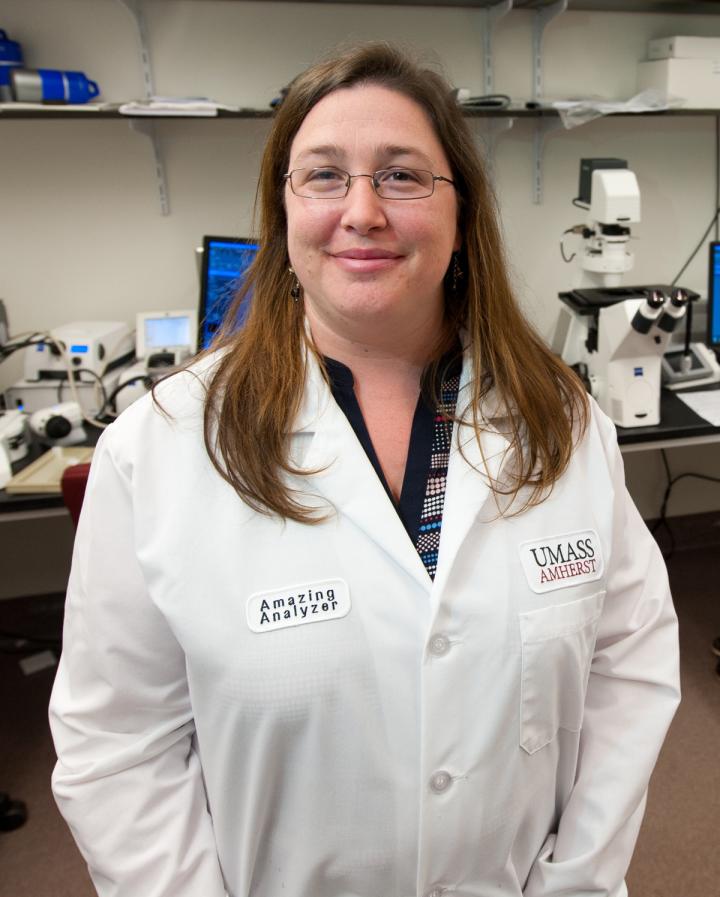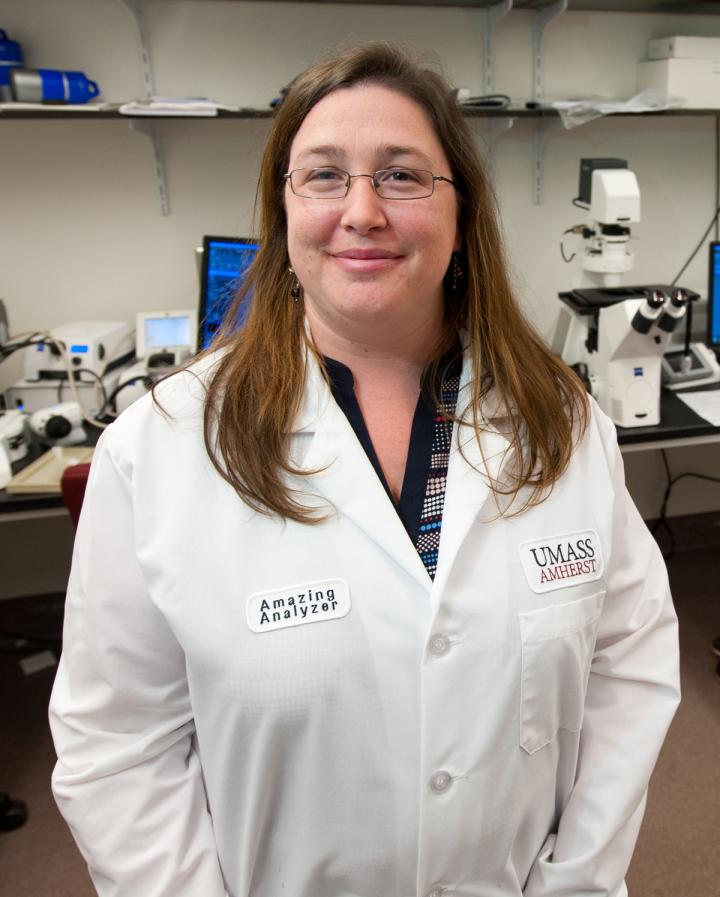
Credit: Pablo Robles Media Photography
AMHERST, Mass. – In the first study of its kind, environmental health scientist Laura Vandenberg and neuroscientist Mary Catanese at the University of Massachusetts Amherst examined the effects of the compound bisphenol S (BPS) on maternal behavior and related brain regions in mice. They found subtle but striking behavior changes in nesting mothers exposed during pregnancy and lactation and in their daughters exposed in utero.
BPS, found in baby bottles, personal care products and thermal receipts, is a replacement chemical for BPA and was introduced when concern was raised about possible health effects of that plastic compound. Though studies have found human BPS exposure is likely low, it is widespread and has increased over the past 10 years, the authors note. As with BPA, there is evidence that BPS is an endocrine disruptor.
Assistant professor Vandenberg and Catanese, a recent graduate of UMass Amherst's neuroscience and behavior graduate program, report, "BPS affects maternal behavior as well as maternally relevant neural correlates." Their results suggest that maternal care of pups, including mothers' ability to adjust to the needs of their young during early development, was impaired after BPS exposure "with differing effects based on dose, postpartum period and generational timing of exposure."
They note effects including "a surprising increased incidence of infanticide" in one treated group and poor maternal care, for example. Details appear in the current issue of Endocrinology.
For this work, the researchers divided pregnant mice into three treatment groups and administered no BPS or one of two low doses of BPS throughout pregnancy and lactation. The researchers then monitored nest-building, pup care and other maternal behaviors during the nursing period. Further, two female offspring from each of these litters were mated with unexposed male mice and tested for maternal behavior using the same assays used to test their mothers.
Trained observers recorded each mother's position on or off the nest, self grooming, eating, drinking, sleeping/resting, nest repair and pup grooming at three separate time points after pups were born. Animals were also evaluated on time to retrieve pups that were moved out of the nest, another measure of maternal care.
Further, the researchers examined effects of BPS exposure in a brain region sensitive to estrogen or estrogen-mimicking chemicals that is also believed to be important in maternal behavior in mice.
The authors found a surprising increased incidence of infanticide among mouse mothers exposed to the lower dose in utero. Vandenberg and Catanese report that "although these same effects were not seen at the higher dose, more than 10 percent of females exposed to 2 microgram BPS/kg/day either killed their pups or provided such poor instrumental maternal care that one or more pups needed to be euthanized. While not statistically significant, the neglect and poor maternal care we observed were striking."
In addition to the effects on infanticide, they also found BPS-induced effects on important aspects of maternal care in both exposed mothers and their daughters. They report that females exposed to the higher dose of BPS during pregnancy and lactation spent significantly more time on the nest than controls at one observation point, an unexpected finding given that mouse mothers usually spend less time on the nest as pups grow and develop. The researchers suggest that the mother's BPS exposure "may indicate a lack of adjustment" to the changing needs of her pups.
BPS-exposed mothers also showed significantly shorter latency to retrieve their first pup and significantly shorter latency to retrieve their entire litter on one of the three observation days, which may not represent improved care but instead "may indicate hyperactivity, compulsivity-like behavior, heightened stress response to scattered pups, or a displaced form of retrieval."
Different effects were seen in maternal behaviors of the exposed daughters. BPS-exposed daughters spent significantly less time on the nest compared to unexposed controls. The authors also add, "Observations suggesting an inability to attend to the changing development and needs of the pups may also be extended to measures of nest building." In the exposed daughters, BPS treatment increased time spent nest building on one of the observation days, which "may indicate a repetitive or OCD-like behavior."
Overall, Vandenberg and Catanese write that "uncovering effects of environmental chemicals that might influence proper maternal care have broad social and public health implications" because from an evolutionary perspective, maternal behavior is related to survival of offspring.
###
This work was supported by funding from UMass Amherst, a grant from the National Institute of Environmental Health Sciences and a fellowship from the Center for Research on Families at UMass Amherst.
Media Contact
Janet Lathrop
[email protected]
413-545-0444
@umassscience
http://www.umass.edu
############
Story Source: Materials provided by Scienmag





